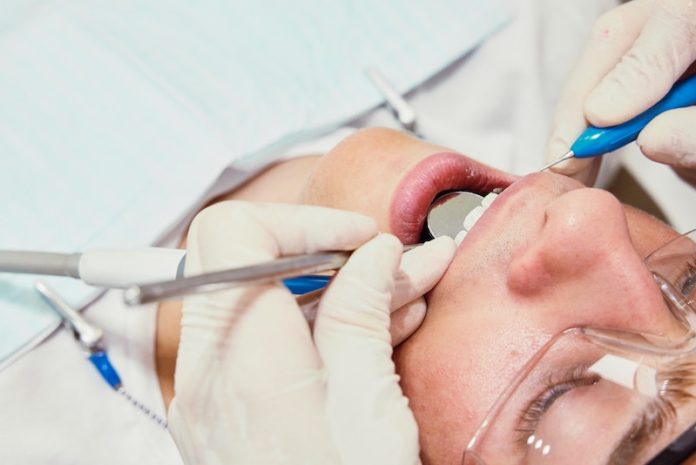
A longstanding medical mystery has revolved around a perplexing link between gum disease and rheumatoid arthritis.
New research, published in Science Translational Medicine, may have unlocked a key piece of this puzzle.
The study suggests that compromised gums, vulnerable due to gum disease, allow oral bacteria to enter the bloodstream.
This, in turn, triggers an immune response that targets the body’s own proteins and leads to rheumatoid arthritis flare-ups. The findings open up new avenues for understanding and treating these conditions more effectively.
The Link Between Gum Disease and Rheumatoid Arthritis
Patients with gum disease have long been observed to be less responsive to rheumatoid arthritis treatments.
The study, led by Dana Orange, a professor of clinical investigation at The Rockefeller University, delves into the connection between these seemingly unrelated conditions.
The researchers monitored a group of arthritis patients over several years, collecting regular blood samples to track gene expression changes that might explain arthritis flare-ups.
A Surprising Discovery
During the study, two patients with moderate to severe periodontal (gum) disease displayed a recurring presence of oral bacteria in their bloodstreams, even in the absence of dental procedures.
Rheumatoid arthritis patients typically have autoantibodies in their bloodstream that target the body’s proteins and peptides.
These autoantibodies often focus on proteins that have undergone citrullination, a process where one amino acid in the protein is converted into another.
Upon further investigation, the research team found that the oral bacteria found in the blood were also citrullinated in the mouth, similar to the proteins targeted by autoantibodies in rheumatoid arthritis.
They then demonstrated that the same autoantibodies that attack citrullinated proteins in the body also react to citrullinated bacteria.
Implications for Treatment
These findings could explain why treatments for arthritis are less effective in patients with gum disease.
If gum disease continually releases immune triggers into the bloodstream, addressing arthritis without first tackling the periodontal issue is like trying to empty a ship of water without plugging its leaks.
Orange emphasizes that gum disease is highly treatable, whereas rheumatoid arthritis is often more challenging to manage.
The study reveals that periodontal disease leads to “leaky” gums that allow oral bacteria to repeatedly enter the bloodstream.
While this doesn’t cause obvious symptoms, it does trigger inflammatory and autoantibody responses that are relevant to rheumatoid arthritis.
The research underscores the importance of conducting long-term studies to gain deeper insights into chronic diseases.
This study was made possible by an initiative that enables arthritis patients to collect their own blood samples at home using finger-prick kits and send them to Rockefeller University regularly.
Having several years of data has allowed researchers to track events in the blood preceding arthritis flares, shedding light on this complex link between gum disease and rheumatoid arthritis.
“Investigating the mechanisms behind these diseases is a complex and nuanced task, but our findings have the potential to improve patient care and treatment outcomes,” says Orange.
If you care about dental health, please read studies about best food for tooth and gum health, and how to prevent and reverse gum disease.
For more information about dental health, please see recent studies about diabetes and gum disease, and results showing this diet could help treat gum disease.
The research findings can be found in Science Translational Medicine.
Follow us on Twitter for more articles about this topic.
Copyright © 2023 Knowridge Science Report. All rights reserved.



